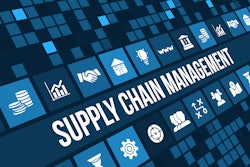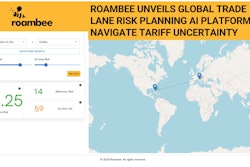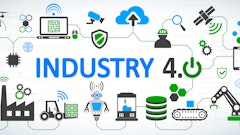
Global supply chains are constantly battling external factors such as shifting customer expectations, political changes altering tariffs, and pressure from various stakeholders to improve efficiency. You only have to think about the recent U.S. election, where President Trump's imposition of large tariffs on foreign imports was one of the key commitments in the manifesto. However, more and more, logistics companies are looking to AI to help deal with these issues. A study from Meticulous Research supports this idea, with demand for AI technology in supply chain management growing from a projected market size of $58.55 billion by 2031 and a CAGR of 40.4% from 2024.
It is no wonder that there is such a keen interest in the use of AI. A McKinsey report shows that businesses, which were able to adopt AI-driven supply chain management quickly, experienced widespread operational enhancements—a 35% decrease in inventory levels, and a 65% increase in service levels on average across those surveyed.
Let’s dig deeper into how AI solutions can address logistics challenges through their ability to automate repetitive tasks, mitigate compliance risks, and enable logistics teams to focus on customer support and strategic planning.
Automation of repetitive tasks for accuracy and consistency
Logistics is an industry that is filled with repetitive tasks that have frustrated many operations people and manufacturers for decades. Whether it be inventory management or route optimization and processing orders, automation can allow logistics companies to improve efficiencies through machine learning algorithms in high-volume tasks that previously required lots of manual intervention.
AI robotics warehouses can perform real-time monitoring of inventory levels and trigger automatic orders when supplies are low depending on demand. For example, a U.S. manufacturing conglomerate has implemented robotic systems across their factories, handling thousands of stock-keeping units (SKUs) and delivering a 40% increase in throughput.
Elsewhere, a European manufacturer was able to develop a digital replica of a drug manufacturing process for a pharmaceutical company, which allowed the client to gain more control over production and make real-time adjustments based on the insights from data mining, resulting in significant savings and more efficiency in the production process.
Compliance and reducing delays
AI can also be used to look across past shipments, market conditions, and real-time factors like weather and traffic, in order to anticipate potential risks that could impact delivery schedules. For example, a large truck manufacturer uses machine learning for predictive maintenance which allows them to forecast repairs well in advance so that they don’t create disruptions on the road. It can then keep their trucks running efficiently and avoid any potential downtime caused by a mechanical issue.
Huge delivery companies are always looking to utilize AI to optimize delivery routes. This intelligent route optimization has enabled them to improve on-time delivery rates by nearly 80% in some cases, while reducing fuel consumption, which is crucial for both operational efficiency and environmental impact. Additionally, AI can be harnessed in this same space with records related to fuel usage and emissions so generate reports for regulatory compliance, which lessens the administrative burden on teams.
Customer support and strategic planning
With many of the repetitive tasks taken care of, there is more scope for logistics professionals to focus on more valuable activities related to customer support. Logistics companies can improve data processing capabilities through AI-driven customer support tools, which leaves more resources for customer relations and improved customer satisfaction. Logistics teams can respond to customer inquiries rapidly, for example, and even use predictive insights to pass on information regarding potential delays to customers. This reassurance is a big asset and is a good way to ensure a customer's loyalty and trust in operations.
There is no denying that the logistics industry will continue to invest in automation, given the multitude of benefits. In fact, in the previously cited study, McKinsey estimated that AI-driven automation has reduced costs by up to 15% for early AI adopters. AI advancements should continue to make supply chains more agile and lead to greater operational efficiency and flexibility. Thanks to optimized routes and reduced fuel consumption, there is also hope for lower environmental impact in an industry that is under more scrutiny than most in this area.
















